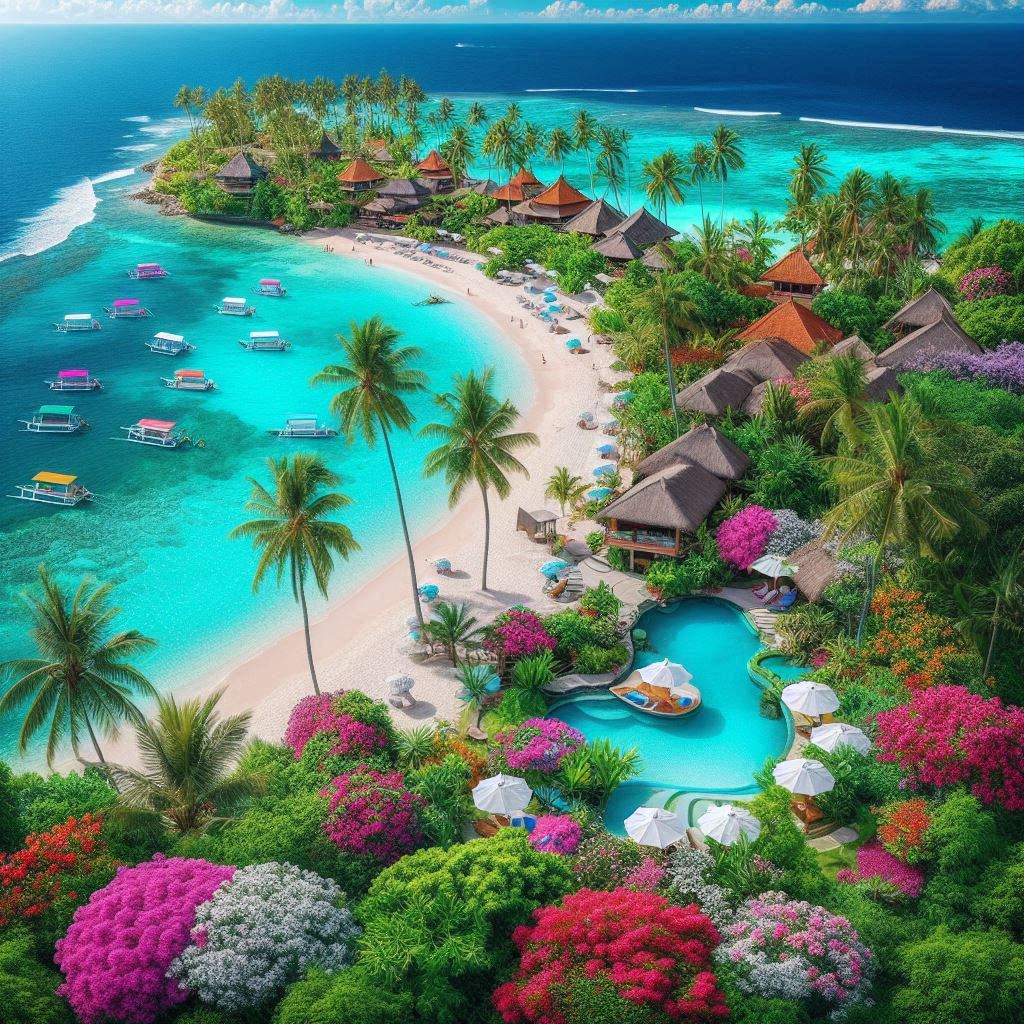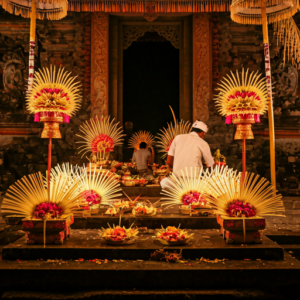
Amidst the lush landscapes and vibrant culture of Bali lies a hidden sanctuary of relaxation and rejuvenation – volcanic hot springs. Fed by the island’s geological wonders, these natural thermal pools offer travelers a blissful escape from the hustle and bustle of daily life, providing a tranquil oasis to unwind, recharge, and connect with the healing powers of nature. In this exploration, we immerse ourselves in the soothing embrace of Bali’s volcanic hot springs, uncovering the therapeutic benefits, cultural significance, and serene beauty that await those seeking natural relaxation.
The Therapeutic Benefits of Volcanic Hot Springs
Bali’s volcanic hot springs are renowned for their therapeutic properties, offering a host of health benefits for both body and mind. Rich in minerals such as sulfur, calcium, and magnesium, these natural thermal pools are believed to have healing properties that can soothe tired muscles, improve circulation, and alleviate aches and pains.
One of the main benefits of soaking in volcanic hot springs is their ability to promote relaxation and stress relief. The warm, mineral-rich waters help to relax tense muscles and calm the nervous system, creating a sense of deep relaxation and tranquility that can help alleviate the symptoms of stress, anxiety, and insomnia.
Additionally, the mineral content of volcanic hot springs has been shown to have therapeutic effects on the skin, helping to improve conditions such as eczema, psoriasis, and acne. The warm water opens up pores, allowing minerals to penetrate deep into the skin and promote healing and regeneration, leaving skin feeling soft, smooth, and revitalized.
Furthermore, soaking in volcanic hot springs is believed to have detoxifying effects on the body, helping to cleanse the skin, eliminate toxins, and boost the immune system. The heat of the water induces sweating, which helps to flush out impurities and promote overall health and well-being.
Cultural Significance and Rituals
In addition to their therapeutic benefits, volcanic hot springs hold a special significance in Balinese culture and spirituality, serving as places of purification, healing, and spiritual renewal. Balinese Hindus believe that water is a sacred element imbued with divine energy, and hot springs are revered as places where this energy is most potent.
Many of Bali’s volcanic hot springs are located near sacred temples and holy sites, and locals believe that bathing in the waters can cleanse the body and soul of impurities, sins, and negative energies. Rituals such as prayer, meditation, and offerings are often performed before entering the hot springs, to honor the spirits of the land and seek blessings for health and prosperity.
One of the most famous hot springs in Bali is the Tirta Empul Temple, located in the village of Tampaksiring. Built around a natural spring that feeds into a series of bathing pools, Tirta Empul is revered as a place of purification and spiritual renewal. Visitors can participate in a traditional cleansing ritual known as „melukat,“ where they bathe in the holy waters and receive blessings from a Hindu priest, symbolizing the purification of body, mind, and spirit.
Soothing Sanctuaries Amidst Nature’s Beauty
Bali’s volcanic hot springs are often nestled amidst stunning natural landscapes, offering travelers a serene retreat amidst the island’s lush jungles, cascading waterfalls, and towering mountains. Whether tucked away in a secluded valley or perched on the edge of a cliff overlooking the sea, these natural thermal pools provide a tranquil oasis to reconnect with nature and find inner peace.
One such sanctuary is the Toya Devasya Hot Springs, located in the village of Toya Bungkah at the foot of Mount Batur. Set against a backdrop of lush tropical gardens and panoramic views of the volcano, Toya Devasya features a series of thermal pools fed by natural spring water, ranging in temperature from warm to hot. Visitors can soak in the healing waters while enjoying breathtaking views of the surrounding landscape, creating a truly immersive and rejuvenating experience.
Another popular destination for volcanic hot springs in Bali is the Banjar Hot Springs, located near the town of Lovina in the island’s north. Surrounded by lush jungle foliage and towering palm trees, Banjar features a series of tiered pools filled with warm, sulfur-rich water that cascades down from a natural spring. Visitors can swim, soak, and relax in the tranquil setting, listening to the sounds of birdsong and flowing water as they surrender to the soothing embrace of nature.
Preserving Bali’s Natural Heritage
As the popularity of volcanic hot springs in Bali continues to grow, so too does the importance of preserving the island’s natural heritage for future generations to enjoy. Sustainable tourism practices, such as responsible development, conservation initiatives, and community engagement programs, play a vital role in safeguarding Bali’s hot springs and ensuring that they remain pristine and accessible for years to come.
Additionally, raising awareness about the cultural and ecological significance of Bali’s hot springs and promoting responsible visitor behavior can help minimize the impact of tourism on fragile ecosystems and wildlife habitats. By respecting local customs and traditions, following Leave No Trace principles, and supporting conservation efforts, travelers can help protect Bali’s hot springs and ensure that they remain a source of relaxation and rejuvenation for generations to come.
Conclusion
Bali’s volcanic hot springs offer travelers a blissful retreat amidst the island’s lush landscapes and vibrant culture, providing a tranquil oasis to unwind, recharge, and connect with the





